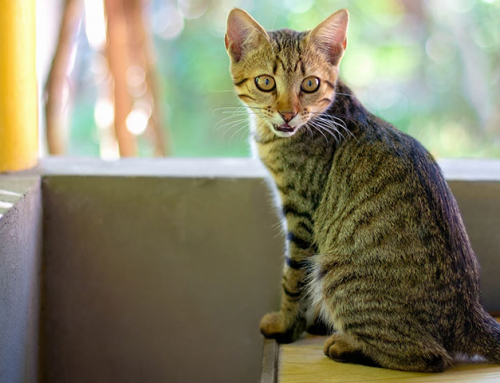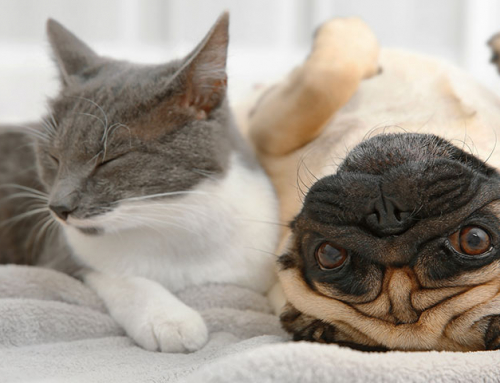Yesterday a friend asked me, “Why does my cat hate me after I put on his flea preventative each month?” I laughed and told him because his cat was a cat. I remember once putting a topical flea medication on one of my cats one morning before I headed off to work. When I got home he was sitting on my bed, glaring at me with the dirtiest look he could muster. Now these are perfectly healthy cats that simply live in south Florida where the flea pressure mandates monthly control year-round. What about cats with chronic disease such as diabetes who receive daily injections and periodically might go on antibiotics and such?
Today we will discuss ways to minimize the grudge our beloved felines hold after we medicate them. Before we get started let’s go over a few cat basics that may help you understand why cats are harder to medicate than our canine companions. First of all, cats are smarter than us. Even a not-so-smart cat can make himself scarce when we go near the medications drawer.
The next big hurdle to accept is that cats are aliens. I’ve heard men are from Mars and women are from Venus, but cats are from some galaxy far, far away. In the early 1990s when I was a novice veterinarian, I used to wonder why cats did what they did. I found them frustrating patients. Once I stopped trying to figure it out and just accept them as they are, my life got a whole lot easier. It was such a simple shift in my mind set. Surprisingly, these days I probably prefer vetting cats over dogs.
Tips on medicating your feline
Bribery. This works for all species. Cats may not be so generous as to show their appreciation for a reward, but after we do something unsavory (injection, medication, nail trim, various other methods of cat torture), a reward of food or cat nip may take their attention away from hating us. It can perhaps lessen their wrath.
When giving medication, it helps if it doesn’t taste bad. For ease of administration we vets often prescribe liquid medications to cats. Provided the cat doesn’t drool and foam and spit it out, liquid is easier for many owners. Sometimes we get these liquids compounded by specialty pharmacies into flavors such as chicken or fish. Another ploy for chronically administered medications is to have the pharmacist put them into flavored chews. One compounding pharmacy that I like will give strips of “non-medicated” blanks to see which flavor a pet prefers prior to compounding the chew with the desired medication.
I personally prefer medicating cats with pills over liquid, but then I’ve spent over half my life in this profession, “having my way” with felines. The key to pilling a cat successfully is to wrap a touch of pill pocket or pill wrap around the pill. Or for cats on low-carb diets, a dab of butter works too. Never “dry pill” a cat, as they will hold it in their esophagus or throat until you leave the room and then spit it out. You know a cat has swallowed when the tongue comes out. I’ve had clients tell me that pill pockets “don’t work” for their cat. I think it is adorable innocence to think a cat would be fooled by a pill pocket and take it voluntarily. Yes, this happens on rare occasion for some cats, but then again there is always a lucky someone who wins the lottery. Of course, your cat will be offended when you wrap a bit of pill pocket around a med and send it down the hatch, but afterwards they may think, “Hey, that tasted kind of good!” It’s all about mitigating the grudge.
Now, what if the grudge is based on a trip to the vet? Getting cats into and out of cat carriers can be surprisingly difficult. They only have four limbs yet seem to spring extra appendages when a cat carrier is involved. The pheromone they use to mark us when they rub their chin on us is commercially available in a product called Feliway. It comes in a diffuser for generally anxious cats (which humans can’t smell), but for an acute situation like the battle of the cat carrier, it comes in a spray bottle and individually packed wet wipes that you can apply to the pet carrier.
If your cat not only holds a grudge but is beyond most medications (unfortunately they have a vote), there is an antibiotic injection that lasts for 2 weeks. It is a cephalosporin. This medication was designed with small cats in mind, although I’ve met a small dog or 2 that were pretty hard to medicate. Remember, whether you are a vet, a vet nurse or a pet owner, when giving an injection we should massage the skin before and after. Like our mamas told us, “Rubbing it makes it feel better.”
Above all, know that you are not alone. Others, too, are blessed enough to have felines in their homes to boss us around and show their disapproval when we medicate them. How we love these little monsters!
NOTE: Consult your veterinarian to confirm that my recommendations are applicable for the health needs of your pet.







Dear Dr. Sutton,
I learned a great trick from a nurse friend of mine for administering between the shoulder blades monthly flea, tick, heartworm and ear mite medicine. I use Revolution. Have a syringe with a needle, remove top from med. Insert needle into little plastic container of medicine and draw out the liquid. Remove needle from syringe, get cat in some nice situation like eating or getting petted or even sleeping, and apply the medicine quickly. It comes out of the syringe SOOOOO much faster and without that pesky squeezing motion we have to do. Some hardly notice. It has really worked for all five of the cats that like to live with me and whom I adore.
Me too, I love receiving these and learning and have a pet sitting company here in St Louis who has asked after your web site. Thanks and in gratitude. Donna
I absolutely love these newsletters from you Dr Sutton! I must be doing some things right that work for my kitty. lol I’ve had to pill many of my kitties and wrapping a little Pill Pocket around them and putting it into a bite of food worked for me. The Pill Pockets work every time and the kitties don’t taste the pills. You and your letters are awesome!